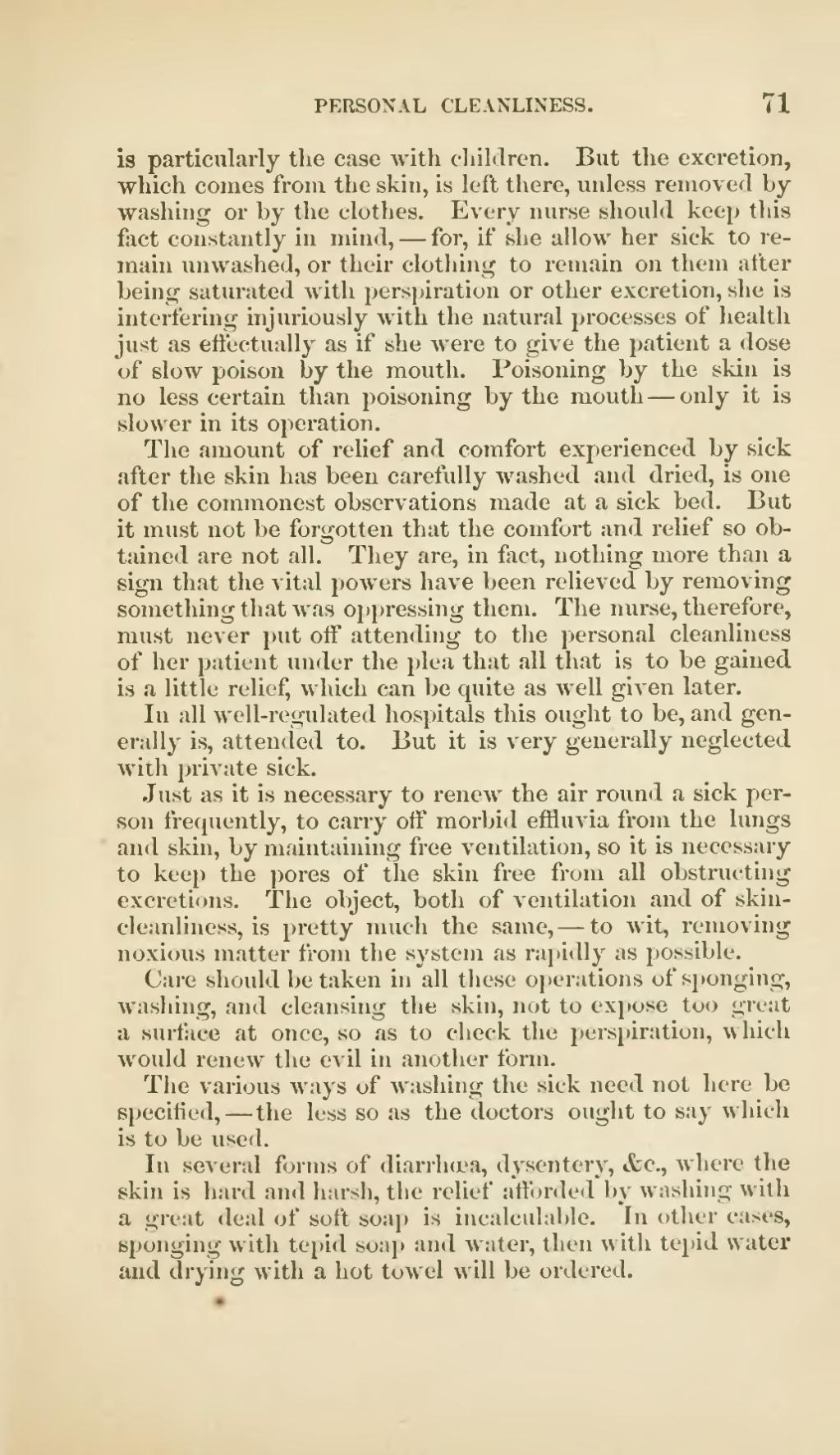is particularly the case with children. But the excretion, which comes from the skin, is left there, unless removed by washing or by the clothes. Every nurse should keep this fact constantly in mind, — for, if she allow her sick to remain unwashed, or their clothing to remain on them after being saturated with perspiration or other excretion, she is interfering injuriously with the natural processes of health just as effectually as if she were to give the patient a dose of slow poison by the mouth. Poisoning by the skin is no less certain than poisoning by the mouth — only it is slower in its operation.
The amount of relief and comfort experienced by sick after the skin has been carefully washed and dried, is one of the commonest observations made at a sick bed. But it must not be forgotten that the comfort and relief so obtained are not all. They are, in fact, nothing more than a sign that the vital powers have been relieved by removing something that was oppressing them. The nurse, therefore, must never put off attending to the personal cleanliness of her patient under the plea that all that is to be gained is a little relief, which can be quite as well given later.
In all well-regulated hospitals this ought to be, and generally is, attended to. But it is very generally neglected with private sick.
Just as it is necessary to renew the air round a sick person frequently, to carry off morbid effluvia from the lungs and skin, by maintaining free ventilation, so it is necessary to keep the pores of the skin free from all obstructing excretions. The object, both of ventilation and of skin- cleanliness, is pretty much the same, — to wit, removing noxious matter from the system as rapidly as possible.
Care should be taken in all these operations of sponging, washing, and cleansing the skin, not to expose too great a surface at once, so as to check the perspiration, which would renew the evil in another form.
The various ways of washing the sick need not here be specified, — the less so as the doctors ought to say which is to be used.
In several forms of diarrhœa, dysentery, &c., where the skin is hard and harsh, the relief afforded by washing with a great deal of soft soap is incalculable. In other cases, sponging with tepid soap and water, then with tepid water and drying with a hot towel will be ordered.

